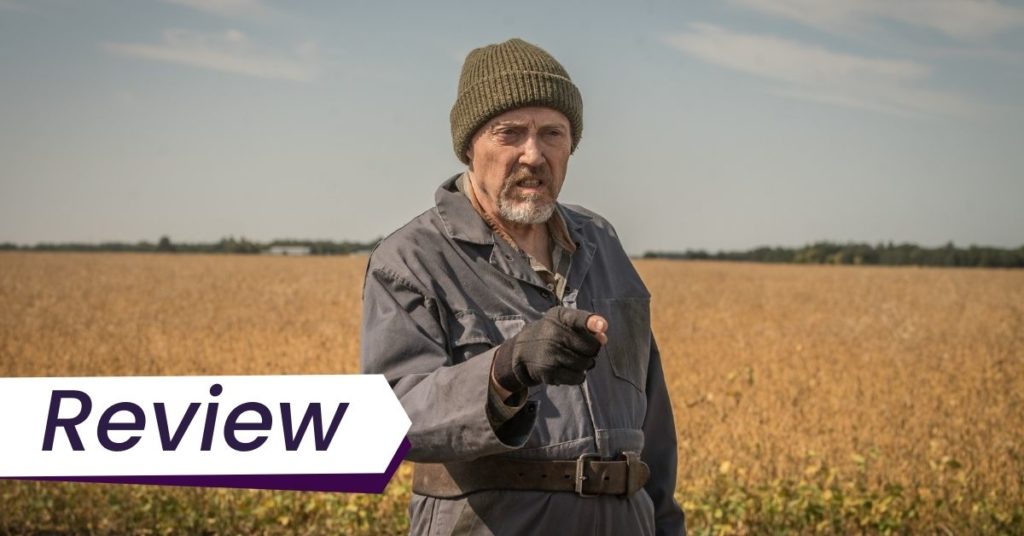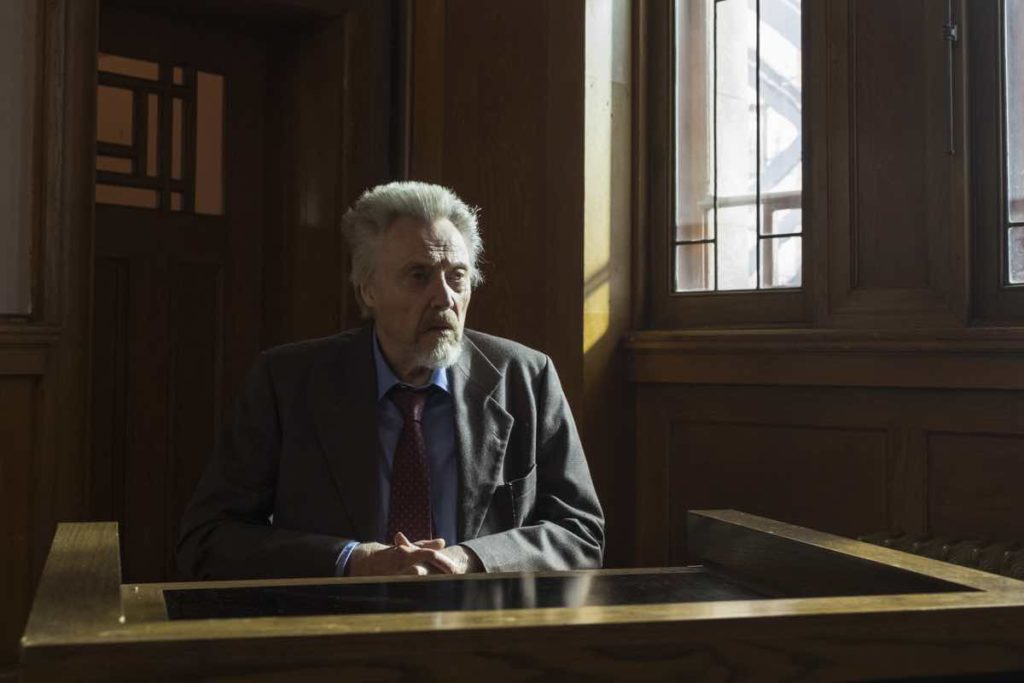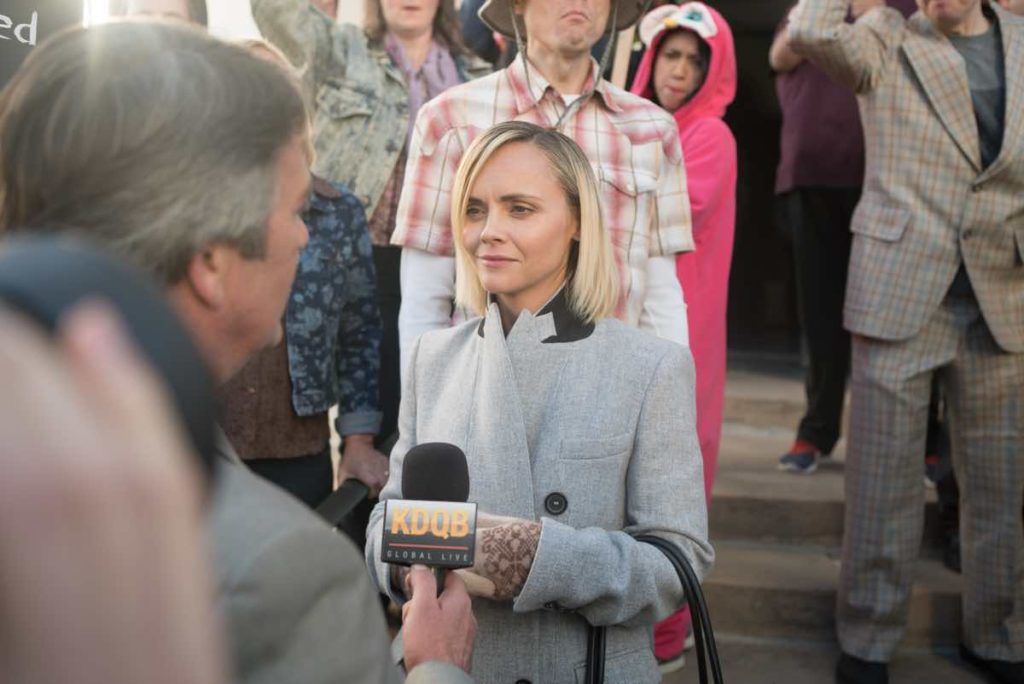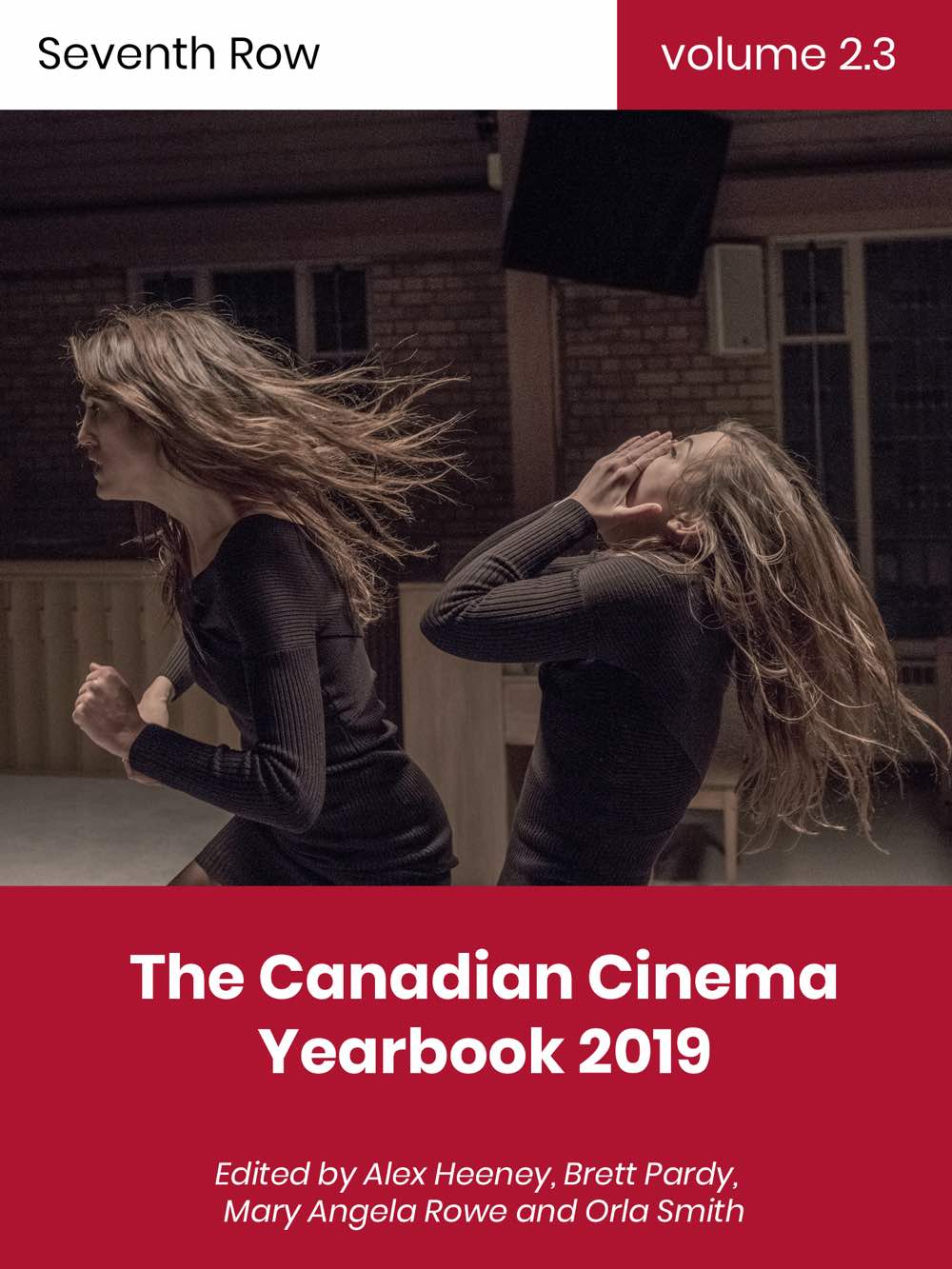Based on a true story, Clark Johnson’s film Percy is about a Saskatchewan canola farmer who semi-fought big GMO in a years-long lawsuit.

With Percy, American-Canadian director Clark Johnson (Juanita) reminds the rest of Canada that something interesting did in fact happen in Saskatchewan — back in the last ‘90s. It’s ironic, then, that the film was not shot at all in Saskatchewan; the credits, instead, boast location shooting in Manitoba. It’s like even the filmmakers couldn’t bear to go to Bruno, Saskatchewan, where the film is set. Of course, that “something” still has to do with farming.
Christopher Walken (not even pretending to do a Canadian accent) plays the eponymous Percy Schmeiser, a Saskatchewan farmer whose family has been farming their land for generations, who suddenly finds himself being sued by a GMO seed company for stealing their intellectual property. At the beginning of the film, Percy explains to us that he doesn’t buy seed; instead, he follows the family tradition of keeping the best seeds from every harvest. So he’s surprised and confused that he’s being accused of using seed owned by Big Grain when he certainly didn’t do so knowingly.

What follows is a fairly standard American-esque tale of an underdog farmer who ends up fighting a big GMO company, first out of justice for himself, and finally, by the time it gets to the supreme court, out of duty to the other farmers who can’t afford to fight. Zach Braff plays Walken’s fish-out-of-water lawyer, no match for the gaggles of fancy lawyer hired by the GMO company. It’s especially egregious that Braff’s character’s limp and cane seem to be dwelled on specifically to remind us of just how much of an underdog he is.
You can largely predict where this story goes, but perhaps what makes it most Canadian of all is that Schmeiser never really wins. He stops wheat from becoming a GMO product, but he can’t stop the industry-wide shift toward GMO canola, the plant he was growing when he was charged. Along the way, there are a bunch of lovable if cliched characters. Christina Ricci’s small stature helps emphasize just how out-of-place her environmental activist character is when she starts butting into Percy’s business. Percy’s wife, Louise (Roberta Maxwell), is against his fight at first, concerned about what they’ll lose, but eventually comes around to Percy’s sense of justice and the greater good. And Percy’s son, Peter (Luke Kirby of Take This Waltz), has chosen to leave farming to teach, which tells us something about the precarity of the profession, no matter how much Percy — or cinematographer Luc Montpellier’s (Splinters) gorgeous prairie sunsets — romanticize the profession.

Still, as a Toronto native, where we consider ourselves the ‘centre of the world’ and the prairies practically non-existent, it was fascinating to learn that a Saskatchewan farmer played such a large role in the history of GMO farm products. The film takes Percy across North America, and even to India, as he spreads his message about the injustice he’s facing in order to raise funds for his lawsuit, only to discover that people around the world are experiencing similar troubles. If it takes a workhorse feel-good film to make me pay attention to Saskatchewan, then, perhaps cinema really is doing its job as an empathy machine.


